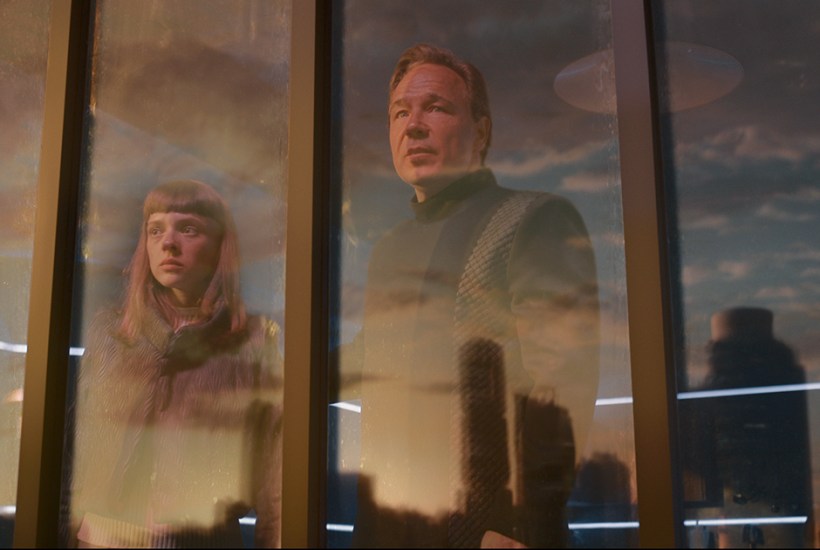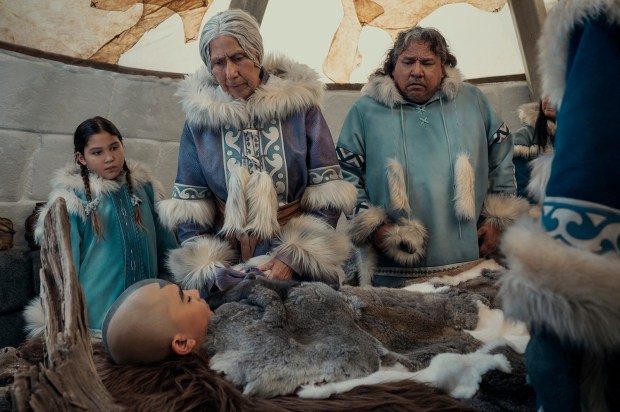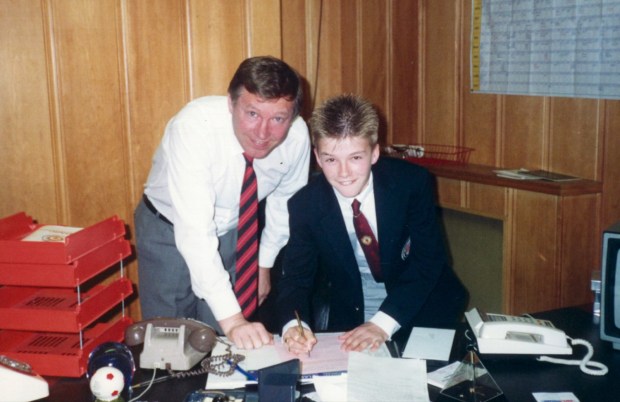Bodies is another of those ‘ingenious’ time-travel apocalypse mash-ups so tricksy and convoluted that by the time the ending comes you’re praying fervently that the nuclear bomb will go off and everyone will die as punishment for the hours of life you’ve wasted on this angsty, politically correct, humourless tosh.
The premise is initially intriguing: four detectives in different time periods – 1890, 1941, the present and the near-future – have to solve the same murder mystery. But it soon becomes clear, as is the way with these things – see, for example, the mind-bending irksomeness of Christopher Nolan’s Inception – that the solution will be simultaneously incomprehensible and epically anti-climatic.
What really lets it down, though, is the sanctimoniousness. It is based on a graphic novel by the late Si Spencer, which was published in 2015 at the very peak of the fad for comics that were more interested in pushing relevant, empowering social issues than they were in entertaining readers.
It opens – where else? – at one of those far-right demos that TV drama so loves. Luckily, feisty, no-nonsense but supremely fair and decent female Muslim detective Shahara Hasan (Amaka Okafor) is on hand, taking great personal risks to ensure justice is done. No doubt such female Muslim detectives do exist but – apart from giving her a hijab and a lovely, educated, well-spoken dad who might be Somali – no effort has been made to contextualise her socially or explore the complexities of her religious background. She’s female and a Muslim and she’s flawless: deal with it!
Meanwhile, in 1941, the key thing you need to know is that the Metropolitan police is riddled with anti-Semitism. The Blitz, the war generally, the telling period detail (which mainly comprises people in a pub singing ‘We’ll Meet Again’) are all subordinate to the fact that Detective Charles Whiteman (Jacob Fortune-Lloyd) suffers intra-departmental racial prejudice on account of Jewishness. This is a bit hard on the viewer/reader. Unlike the script, we don’t give a toss about his ethnic heritage. What we dislike about him is that he is a shifty, amoral spiv, like a much less endearing version of Private Walker from Dad’s Army.
Finally back to the 1890s. What with Jack the Ripper and all those pea-soupers, you might have hoped there’d be plenty enough local colour without the need to shoehorn in modern sexual politics. But no. Apparently happily married detective Alfred Hillinghead (Kyle Soller), with his pretty daughter busily rehearsing on the piano for a church service, turns out to have a secret. We discover this when he meets a handsome, blond, cocksure photographer from a newspaper, who susses out his hidden desires instantly, and subsequently has sex with him.
My objection here is not that there was no homosexuality in Victorian England; we know – from Oscar Wilde and the Yellow Book to Sarah Waters’s Fingersmith – that there was. Rather, it’s that this trait seems to have been nailed on to a character and jemmied into the script for no better reason than to educate and improve the viewer. And I’m really not sure that when I’m watching crazy, gory, time-travel drama I want to be educated or improved. It feels far too close to the grisly and relentless right-on-ness of late-period Doctor Who.
All this might yet have been solved, I think, had it not been so clunkily scripted. It goes without saying that almost no one in TV drama these days is capable of writing plausible dialogue for any era earlier than about 2021. But at least if the commission had gone to someone irreverent and witty like Joe Barton, who always goes for the joke when he can, there would have been far less of the leaden earnestness. If you want to see how much more enjoyable Bodies could have been, check out Barton’s sci-fi time-travel thriller The Lazarus Project.
Pointless, the BBC quiz where you win by choosing the most obscure correct answer, used to be one of my favourite game shows. But I haven’t watched it since the departure of co-host Richard Osman, who left to spend more time writing bestselling novels. So now, remaining host Alexander Armstrong has to hold the fort with a rotating succession of co-hosts. I was lucky enough to catch it when it was the turn of Nish Kumar.
Where Osman played the role of genial, avuncular boffin who knows all the answers, Kumar does a superb though probably accidental impression of Amol Rajan presenting University Challenge. That is, he gets wildly overimpressed even by the most basic answers. So, for example, if the challenge is to find the most obscure word ending in ‘-uck’, Kumar will profess himself to be blown away with the genius of a competitor who says ‘duck’ or ‘truck’. Whereas, back in the day, after a brief chortle over the obvious word they could have gone for, Osman would have drily congratulated all the viewers at home who came up with ‘blackbuck’, ‘stagestruck’ and ‘thunderstruck’.
Got something to add? Join the discussion and comment below.
Get 10 issues for just $10
Subscribe to The Spectator Australia today for the next 10 magazine issues, plus full online access, for just $10.
You might disagree with half of it, but you’ll enjoy reading all of it. Try your first month for free, then just $2 a week for the remainder of your first year.















Comments
Don't miss out
Join the conversation with other Spectator Australia readers. Subscribe to leave a comment.
SUBSCRIBEAlready a subscriber? Log in